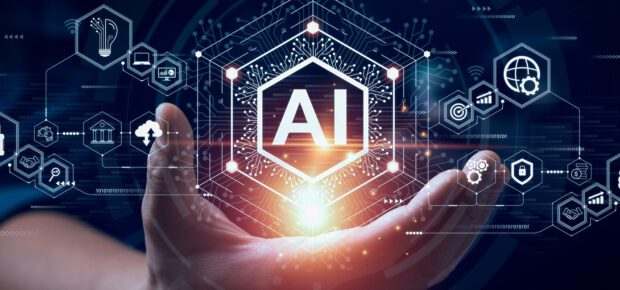May 11, 2023
When people use a search engine, they’re usually looking for information. Sometimes they want to buy something, and sometimes they want to go to a website that they don’t quite remember the web address for.
But most frequently, they’re trying to answer a question.
The recent rise of AI-fueled chatbots may change the way we search for information – because these chatbots are very good at answering questions.
Which raises another question: if a user can ask an AI model for information in a conversational format, why would that user rely on a search engine that requires clicking on links and navigating several web pages?
“Search engines will have to interact with human beings as if they were human too; therefore, searches will become like a conversation between humans,” said IEEE Senior Member Euclides Chuma, whose work focuses on the development of human-centered systems.
A Brief History of Search
In the early days of search engines, users typed in a word or phrase, and the engine showed websites containing that phrase. It worked well for a while, but had its flaws. For example, if you misspelled “bicycle” as “bicicle,” you’d get no results unless a website also made the same mistake. Search engines also struggled to understand what users really wanted when they searched. The search engine couldn’t tell if a user wanted to buy a bike or find the history of the bicycles.
Now, 20 years later, search engines are much better, and smarter. They can find bike shops, fix spelling mistakes and understand unclear language. This is all thanks to AI.
A New Way to Find Information
The AI that search engines use to connect users to information isn’t quite the same as the AI used by today’s headline grabbing chatbots.
The chatbots, which are often referred to as “generative AI” because they can create new content, are able to answer questions with original content, rather than showing content made by others. It will also offer a result whether someone has made a website to answer that question or not. And since it’s conversational, it can give information in a way that’s easy for the user to understand.
But search engines today are still heavily reliant on outside publishers to generate content that meets the needs of their users. And anyone that has used a search engine recently knows that, while they are remarkably good, the content they offer doesn’t always provide exactly what you are looking for. In fact, Google says that about 15% of all searches have never been searched for before.
One problem with popular AI models is they sometimes make things up, called “hallucinations.” But IEEE Member Yale Fox thinks this will get better: “I believe that these models will improve in their ability to separate fact from fiction once algorithms specifically designed for this purpose are implemented.”
In the future, AI-fueled search engines might connect photo recognition with text search. Imagine someone wants to start a heart-healthy diet. An AI assistant could give guidelines for the diet, identify healthy foods from a fridge photo, plan meals and search the websites of nearby grocery stores for the ingredients needed.
“AI models will observe user behavior, interpret images and videos on the screen and proactively offer hints or assistance when users encounter challenges,” Fox said. “The next generation of multimodal AIs will seamlessly blend into the browsing experience, revolutionizing how we navigate and interact with the digital world.”
And that may be only the beginning, Fox said, as generative AI systems begin to write their own algorithms and optimize themselves in ways that humans have never expected.
Learn More: If you are wondering how the rise of AI will impact how we access knowledge and information, you aren’t alone. Check out the IEEE Future Directions blog’s thoughts on new paradigms in search.





 Meaningful Momentum or Running in Place?
Meaningful Momentum or Running in Place? AI Through Our Ages
AI Through Our Ages Liquid Infrastructure: Our Planet's Most Precious Resource
Liquid Infrastructure: Our Planet's Most Precious Resource The Impact of Technology in 2025
The Impact of Technology in 2025 Quantum and AI: Safeguards or Threats to Cybersecurity?
Quantum and AI: Safeguards or Threats to Cybersecurity? Why AI Can't Live Without Us
Why AI Can't Live Without Us Bits, Bytes, Buildings and Bridges: Digital-Driven Infrastructure
Bits, Bytes, Buildings and Bridges: Digital-Driven Infrastructure Impact of Technology in 2024
Impact of Technology in 2024 Emerging AI Cybersecurity Challenges and Solutions
Emerging AI Cybersecurity Challenges and Solutions The Skies are Unlimited
The Skies are Unlimited Smart Cities 2030: How Tech is Reshaping Urbanscapes
Smart Cities 2030: How Tech is Reshaping Urbanscapes Impact of Technology 2023
Impact of Technology 2023 Cybersecurity for Life-Changing Innovations
Cybersecurity for Life-Changing Innovations Smarter Wearables Healthier Life
Smarter Wearables Healthier Life Infrastructure In Motion
Infrastructure In Motion The Impact of Tech in 2022 and Beyond
The Impact of Tech in 2022 and Beyond Cybersecurity, Technology and Protecting Our World
Cybersecurity, Technology and Protecting Our World How Technology Helps us Understand Our Health and Wellness
How Technology Helps us Understand Our Health and Wellness The Resilience of Humanity
The Resilience of Humanity Harnessing and Sustaining our Natural Resources
Harnessing and Sustaining our Natural Resources Creating Healthy Spaces Through Technology
Creating Healthy Spaces Through Technology Exceptional Infrastructure Challenges, Technology and Humanity
Exceptional Infrastructure Challenges, Technology and Humanity The Global Impact of IEEE's 802 Standards
The Global Impact of IEEE's 802 Standards Scenes of our Cyber Lives: The Security Threats and Technology Solutions Protecting Us
Scenes of our Cyber Lives: The Security Threats and Technology Solutions Protecting Us How Millennial Parents are Embracing Health and Wellness Technologies for Their Generation Alpha Kids
How Millennial Parents are Embracing Health and Wellness Technologies for Their Generation Alpha Kids Space Exploration, Technology and Our Lives
Space Exploration, Technology and Our Lives Global Innovation and the Environment
Global Innovation and the Environment How Technology, Privacy and Security are Changing Each Other (And Us)
How Technology, Privacy and Security are Changing Each Other (And Us) Find us in booth 31506, LVCC South Hall 3 and experience the Technology Moon Walk
Find us in booth 31506, LVCC South Hall 3 and experience the Technology Moon Walk Virtual and Mixed Reality
Virtual and Mixed Reality How Robots are Improving our Health
How Robots are Improving our Health IEEE Experts and the Robots They are Teaching
IEEE Experts and the Robots They are Teaching See how millennial parents around the world see AI impacting the lives of their tech-infused offspring
See how millennial parents around the world see AI impacting the lives of their tech-infused offspring Take the journey from farm to table and learn how IoT will help us reach the rising demand for food production
Take the journey from farm to table and learn how IoT will help us reach the rising demand for food production Watch technical experts discuss the latest cyber threats
Watch technical experts discuss the latest cyber threats Explore how researchers, teachers, explorers, healthcare and medical professionals use immersive technologies
Explore how researchers, teachers, explorers, healthcare and medical professionals use immersive technologies Follow the timeline to see how Generation AI will be impacted by technology
Follow the timeline to see how Generation AI will be impacted by technology Learn how your IoT data can be used by experiencing a day in a connected life
Learn how your IoT data can be used by experiencing a day in a connected life Listen to technical experts discuss the biggest security threats today
Listen to technical experts discuss the biggest security threats today See how tech has influenced and evolved with the Games
See how tech has influenced and evolved with the Games Enter our virtual home to explore the IoT (Internet of Things) technologies
Enter our virtual home to explore the IoT (Internet of Things) technologies Explore an interactive map showcasing exciting innovations in robotics
Explore an interactive map showcasing exciting innovations in robotics Interactively explore A.I. in recent Hollywood movies
Interactively explore A.I. in recent Hollywood movies Get immersed in technologies that will improve patients' lives
Get immersed in technologies that will improve patients' lives